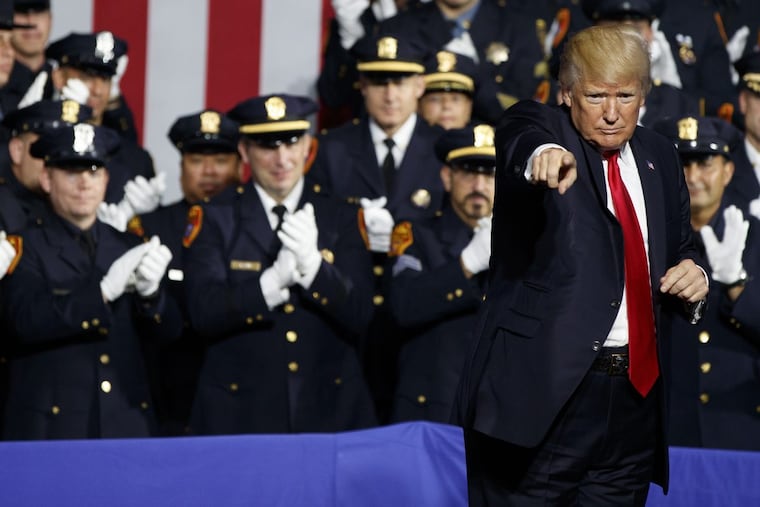Trump-touted "rough rides" have a long, fraught history in Philly
President Trump, speaking to a crowd of police officers in Brentwood, N.Y. about gang violence on Friday, scored a laugh line when he said officers "shouldn't be too nice" during arrests.

President Trump, speaking to a crowd of police officers in Brentwood, N.Y. about gang violence on Friday, scored a laugh line when he said officers "shouldn't be too nice" during arrests.
"When you see these thugs being thrown into the back of the paddy wagon, you just see them thrown in rough, I said, 'Please don't be too nice," he said during a speech about rooting out members of the MS-13 gang, a priority his administration has stressed in recent weeks. "Like, when you guys put somebody into the car and you're protecting their head, you know, the way you put your hand, like, don't hit their head, and they just killed somebody, don't hit their head. I said, you can take the hand away, okay?"
The quip was met with laughter and applause. But the practice he was apparently referencing — known as "rough rides" or "nickel rides," where police throw arrestees into police vans and take them on a seatbelt-less drive, aimed at knocking them around on the way to the station house — has a long, fraught history in Philadelphia and other cities around the country.
In 2001, an Inquirer investigation highlighted 20 people who were paid $2 million in settlements after they were injured in police vans, including two who were paralyzed. The department subsequently changed its rules about how arrestees were transported, but lawsuits continued to allege that the practice persisted. Three years ago, the city paid out $490,000 in a settlement to a stonemason whose neck was broken after he was placed, unbelted, in a Philadelphia police wagon.
And on Twitter, some commentators referenced the case of Freddie Gray, the Baltimore man who died after he was transported unbelted in a police van in 2015, and whose death sparked protests and riots for six nights.
Later on Friday afternoon, the International Association of Chiefs of Police — where former Philadelphia Police Commissioner Charles Ramsey serves on the executive committee — released a statement that said treating everyone officers encounter with respect is "a bedrock principle" of law enforcement.